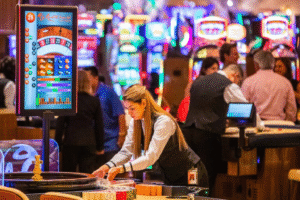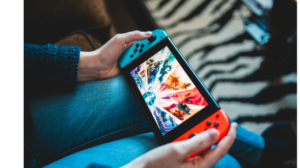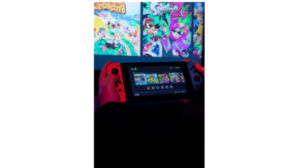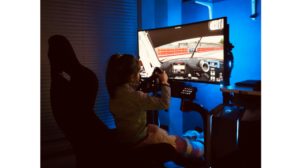1. What is competitive gaming psychology?
Answer: Competitive gaming psychology involves the psychological and emotional components of playing video games, including mindset, concentration, managing pressure, motivation, and resistance. It plays a huge role in how gamers will tackle situations, behave under stress, and act in competition.
2. How crucial is mental toughness in competitive gaming?
Answer: Mental strength makes one competitive during games. The feeling of having been able to go through challenges provides one with full concentration and is self-confident. Moreover, this confidence coupled with strength maintains resilience when setbacks come their way; such often shows success or even failure.
3. What can stress do with your performance during competetive game?
Answer: Stress can affect decision-making, concentration, and reaction times, which makes it difficult to play at your best. However, some players actually perform better under pressure. Managing stress through relaxation techniques, breathing exercises, and proper preparation will improve performance.
4. How can I improve my focus and concentration in gaming?
Answer: Improve attention through mindfulness meditation, avoid distractions that occur in gaming environment, take frequent breaks, get a routine as well as definite objectives while performing during the time spent on a computer.
5. To what extent are self-confidence levels contributing factors towards the competitive sport of video-gaming?
Answer: Self-confidence is the key to winning at competitive games. When players believe in their ability, they are most likely to take calculated risks, trust their gut, and recover from mistakes. Positive affirmations and visualization techniques can build confidence.
6. How does it influence competitive game?
Answer: Anger, frustration, or even excitement can influence control, decision-making, and reaction. Controlling emotions is vital in preventing tilt, or impulsive actions. Regulation of emotions using techniques such as deep breathing or a short break will help keep composure.
7. What is “tilt” and how can I prevent it?
Answer: Tilt is a state of emotion where frustration, anger, or anxiety has an adverse effect on gameplay. In order to prevent tilt, it is important to be mindful, have a positive attitude, and focus on the process rather than the outcome. Taking time out after tough games can also be helpful in clearing your mind.
8. What is the relevance of goal setting in competitive gaming?
Answer: Goal setting gives direction, motivation, and sense of purpose. It can break down the large task into small steps and enable players to track their progress. The increase in both short-term and long-term goals helps in sustaining concentration and raising motivation and reduces stress during competitions at high stakes.
9. How do I improve my reaction time in competitive gaming?
Answer: Reaction time is improved through training and mental conditioning. Training the reflexes in drills, focus on hand-eye coordination, and minimizing distractions when playing will increase reaction times. Physical exercise helps improve overall cognitive functioning.
10. How does visualization work in competitive gaming psychology?
Answer: Visualization involves mentally rehearsing scenarios and imagining successful outcomes. It helps improve focus, prepare for challenges, and boost confidence. By visualizing specific in-game actions and responses, players can prepare mentally for various game situations.
11. What are “mind games” in competitive gaming?
Answer: Mind games are tactics that use the psychological onslaught of misleading, confusing, or manipulating an opponent. Examples include bluffing, creating uncertainty, using some sort of pattern to predict and counter one’s opponent. People who master mind games can have the psychologic edge in match ups
12. How would you keep calm while under pressure gaming?
Answer: Calmness under pressure involves learning stress-management techniques, like deep breathing, meditation, or progressive muscle relaxation. Taking short breaks during long gaming sessions can also help reset your mind and prevent feelings of overwhelm.
13. How does a positive attitude influence competitive gaming performance?
Answer: A positive attitude helps one to be resilient, reduces stress, and makes one continue to play even after mistakes. Players with a positive attitude are more likely to bounce back from mistakes and stay motivated, while negative attitudes can discourage them and lead to poor performance.
14. Why is teamwork important in competitive gaming?
Answer: In team-based games, effective communication, trust, and coordination are essential. Understanding group dynamics, supporting teammates, and maintaining group morale all contribute to a positive team environment, which can enhance collective performance.
15. What is “flow” in competitive gaming and how can I achieve it?
Answer: Flow is a state of intense focus and immersion where players feel completely engaged and in control. To achieve flow, players need to balance challenge and skill, set clear goals, and eliminate distractions. Flow often leads to peak performance during gaming sessions.
16. How can I handle losing without getting discouraged?
Answer: Accepting loss as part of the learning process is crucial. Instead of focusing on the outcome, focus on the areas of improvement and set new goals. Embrace a growth mindset, where every loss becomes an opportunity to learn and refine your skills.
17. What is “self-talk” and how does it affect my performance?
Answer: Self-talk is the inner dialogue that the players have while playing. Positive self-talk enhances confidence, helps maintain focus, and reduces anxiety. Negative self-talk decreases motivation and causes a player to doubt himself, thereby affecting his performance.
18. How can I prevent burnout in competitive gaming?
Answer: Prevention of burn-out, balance in-game and other activities, take regular breaks, maintain health, physically and socially outside of gaming, achieve realistic goals, and avoid overtraining, because the mind as well as the body needs to be rested.
19. How does preparation affect mental preparedness for competitive gaming?
Answer: Complete preparation, like practicing skills, learning strategies, and reviewing past performances, enhances mental readiness. Proper preparation boosts confidence, reduces anxiety, and makes the player feel more in control during competition.
20. How can I overcome performance anxiety in competitive gaming?
Answer: Relaxation techniques, visualization, and a focus on the process rather than the outcome are ways to deal with performance anxiety. Reframing anxiety as excitement can help a person shift their focus from fear to enthusiasm, thus increasing performance levels.
21. What is “mental fatigue,” and how do I avoid it in gaming?
Answer: Mental fatigue occurs when cognitive resources are depleted after long gaming sessions, impairing focus and decision-making. To avoid mental fatigue, take breaks, stay hydrated, get enough sleep, and practice mindful relaxation techniques to rejuvenate the mind.
22. How do I build resilience in competitive gaming?
Answer: Resilience can be developed by embracing challenges, learning from mistakes, and having a long-term perspective. Mindfulness, staying positive, and focusing on personal growth help players bounce back from setbacks and improve their overall mental toughness.
23. What is the role of emotion regulation in competitive gaming?
Answer: Emotional regulation can assist players to overcome frustration, excitement, or anger, helping them to be in the zone and make more sensible decisions. Techniques such as deep breathing, self-awareness, and breaks are all able to maintain emotional control over gameplay and therefore improve game play.
24. What is “grit” and how is it relevant to competitive gaming?
Answer: Grit refers to passion combined with perseverance towards long-term goals. In the gaming world, grit is to persist in training for improvement after encountering failures and disappointments. It is vital to overcome setbacks and stay motivated while facing a rough patch.
25. How can I build a growth mindset in competitive gaming?
Answer: A growth mindset is viewed as challenges as opportunities for learning rather than threats. Focus effort over innate ability, welcome criticism, and always improve. These players with the growth mindset would be more persistent and resilient over failures.
This would help a gamer understand the psychological aspects of competitive gaming for the long-term benefit and well-being. The best way to enhance performance is to develop mental resilience, manage emotions, and create the right mindset in a player for enjoying competitive gaming.








